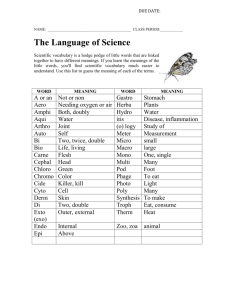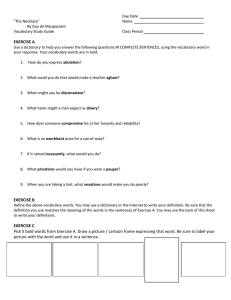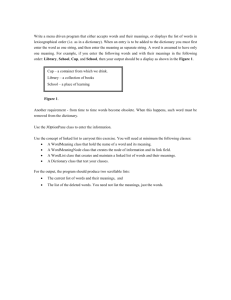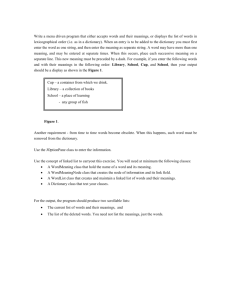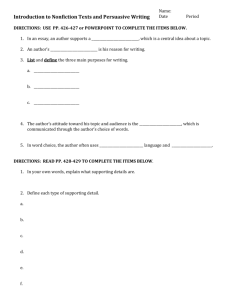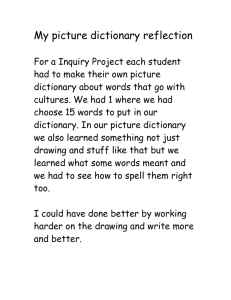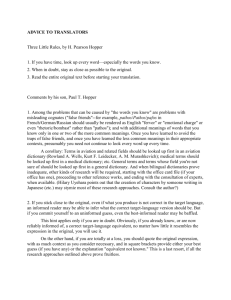DICTIONARY WORK
advertisement
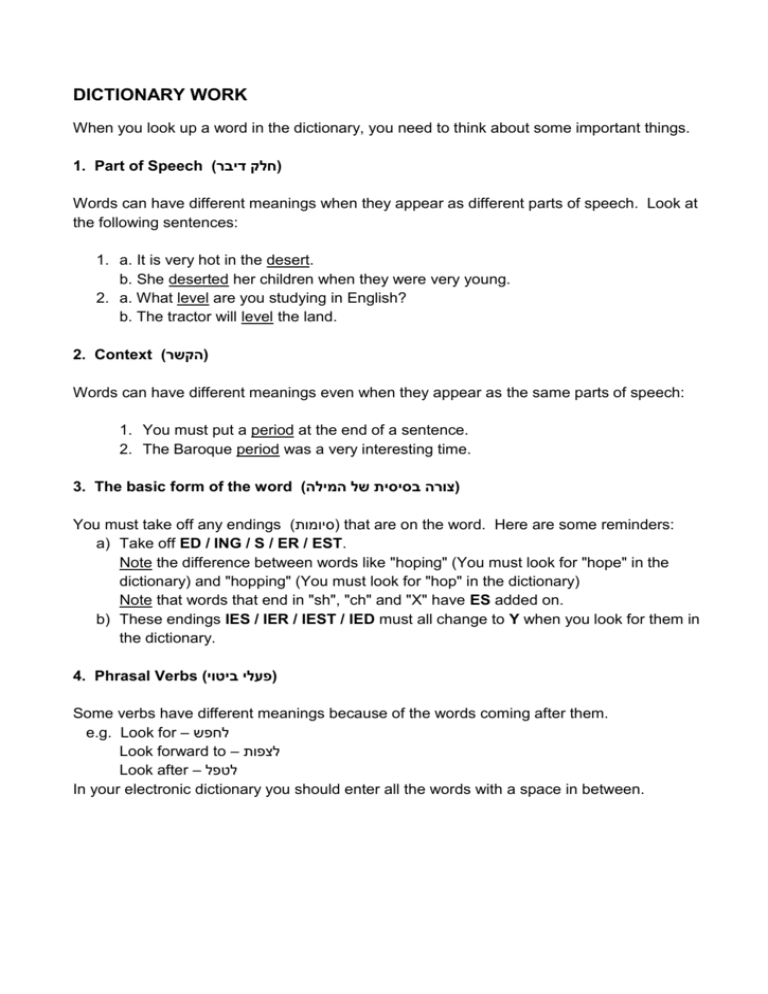
DICTIONARY WORK When you look up a word in the dictionary, you need to think about some important things. 1. Part of Speech )(חלק דיבר Words can have different meanings when they appear as different parts of speech. Look at the following sentences: 1. a. It is very hot in the desert. b. She deserted her children when they were very young. 2. a. What level are you studying in English? b. The tractor will level the land. 2. Context )(הקשר Words can have different meanings even when they appear as the same parts of speech: 1. You must put a period at the end of a sentence. 2. The Baroque period was a very interesting time. 3. The basic form of the word )(צורה בסיסית של המילה You must take off any endings ) (סיומותthat are on the word. Here are some reminders: a) Take off ED / ING / S / ER / EST. Note the difference between words like "hoping" (You must look for "hope" in the dictionary) and "hopping" (You must look for "hop" in the dictionary) Note that words that end in "sh", "ch" and "X" have ES added on. b) These endings IES / IER / IEST / IED must all change to Y when you look for them in the dictionary. 4. Phrasal Verbs )(פעלי ביטוי Some verbs have different meanings because of the words coming after them. e.g. Look for – לחפש Look forward to – לצפות Look after – לטפל In your electronic dictionary you should enter all the words with a space in between. Exercises 1. Look at the word in bold. What is its Part of Speech? What is its meaning, in the context of the sentence? Part of Speech Meaning 1. a) I would like to draw your attention to the following question. b) Mr. Cohen is always a great draw in our meetings. 2. a) We need to shape our ideas before we start writing the book. b) The shape of this table is very unusual. 3. a) He had an strong drive to smoke cigarettes. b) Her great suffering drives her to alcoholism. 4. a) The teacher will post the grades tomorrow. b) The dog was tied to a post beside the store. 5. a) The man who was injured in the accident is in grave condition. b) When people visit a grave, they often leave flowers. 2. Look at the word in bold. What is its Basic Form? What is its meaning, in the context of the sentence? (Remember to think about Parts of Speech also!) Basic Form 1. He is potting his plants in beautiful vases. 2. That joke is sillier than the other one. 3. They remedied the problem. 4. She looked at the swatches of fabric. 5. Fleming was the discoverer of penicillin. 6. We are creating new jobs. 7. He had many excuses for being late. Meaning


